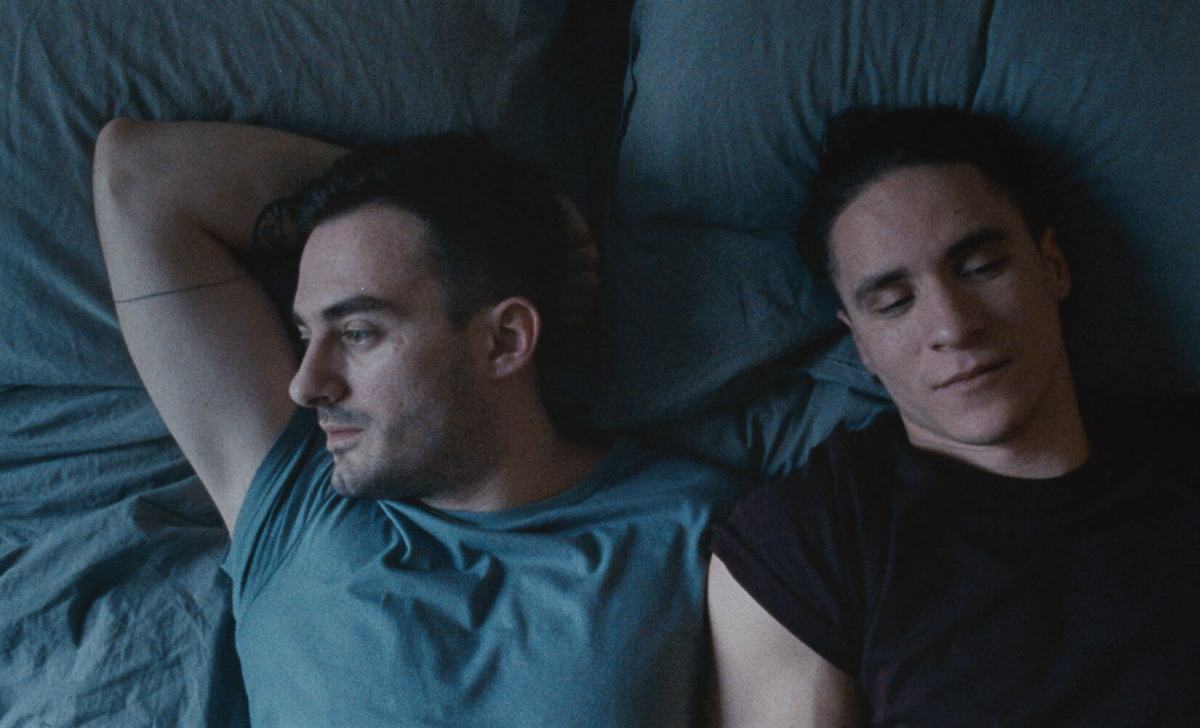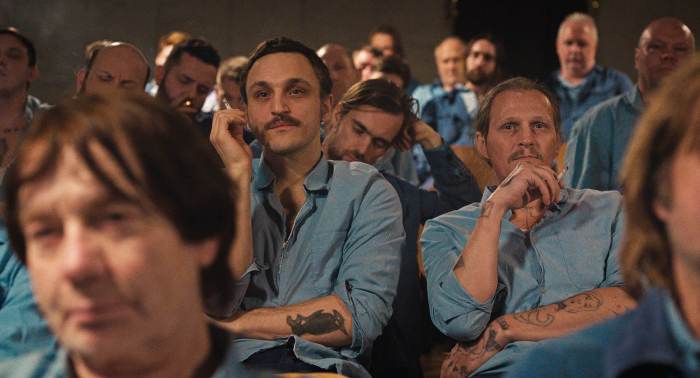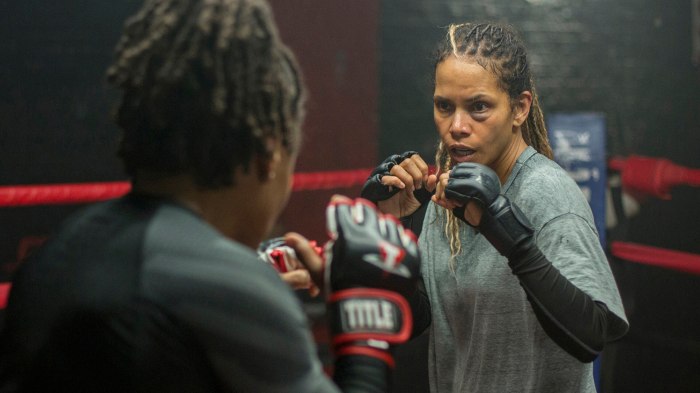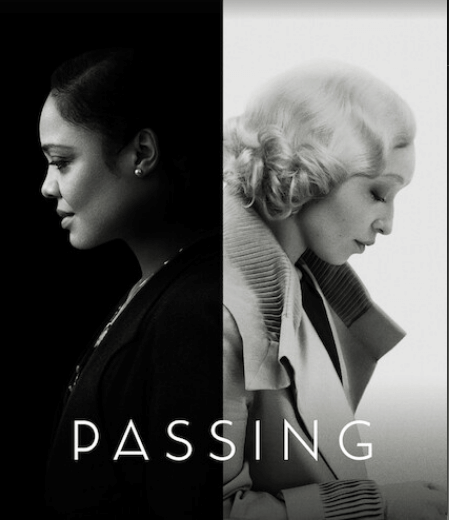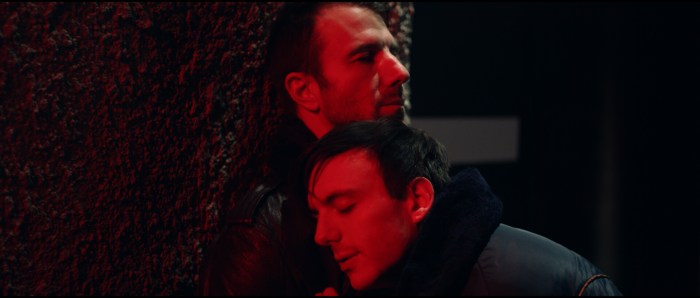The closeted gay man whose internalized homophobia leads him to betray other LGBTQ people and commit violence is an archetype. “The Power of the Dog” put him in conflict with another queer archetype, a femme-coded man who is equally capable of violence. In this day, the character is rather back-dated; it’s perfectly possible to be openly gay while being a macho jerk. But the Romanian film “Poppy Field,” made two years ago, takes this kind of man and puts his self-denial in crisis.
Cristi (Conrad Mericoffer) is a cop in a long-distance relationship with a French man, Hadi (Radouan Leflahi). The film begins with them getting up and preparing for the day. They plan to escape the small town where Cristi lives for a weekend together. Cristi’s sister Catalina (Cendana Trifan) turns up. Suddenly, Cristi is summoned to work by an emergency. Protesters have gathered at a theater showing a lesbian-themed film. Although it never mentions the film being protested, “Poppy Field” was inspired by an incident at a 2013 screening of “The Kids Are Alright” in Romania. They’ve prevented its screening by climbing onstage with homophobic signs. The audience grows tense, but after the cops arrive, no one is allowed to leave. Cristi runs into a man he used to date, who confronts him about his complicity with homophobia. Cristi grows violent, punching the man and breaking his nose. As the protesters and audience move into the theater’s lobby, he interacts with his colleagues, fuming as he realizes the severity of what he’s done.
Gay director Eugen Jebeleanu has a background in theater, which shines through in the limited settings and intense focus on performance and dialogue. (This is his first film.) “Poppy Field” functions as a miniature. Without following a rigid three-act structure, it moves from Cristi’s apartment to the movie theater to a parking lot outside it. (Two scenes are set in police vans and cars.) Each of these locations is a completely different space. In the theater, Cristi has to interact with the general public, while the cops can treat each other as a unit when they’re talking by themselves.
At one point, Cristi gets on stage at the theater. It’s no accident that the film is about the public presentation of gayness.
Mericoffer’s performance speaks most eloquently when Cristi is quietly stewing. His appearance at the movie theater is a long gauntlet of anxiety, as he faces flat-out aggressions from the homophobic protesters and his colleagues. Jebeleanu uses long takes that turn scenes into showcases for his actors. The visual contrast between the crowded theater, with protesters holding signs onstage, and its emptying out after the police clear it out is profound. (In one long shot, Cristi occupies a seat in the middle of the theater, with no one else around.) The theater becomes a space where Cristi has to confront his true nature.
Most of the cops are openly homophobic. They joke about the theater audience consisting of men in skirts, or even suggest that Cristi plant drugs on the man he punched so they can stage an arrest. Only Mirceau (Alexandru Potucean) seems to recognize what Cristi’s going through, without getting too direct about it. The film never returns to the thread of Cristi’s relationship with his boyfriend. The opening scenes show a tenderness he has to repress as a cop. But the fact that Hadi is Muslim, who performs early morning prayers, seems important. (Leflahi is a Frenchman of Moroccan descent.) These scenes suggest a cosmopolitanism, including Cristi, Hadi, and Catalina going back and forth between Romanian, French, and English to find a common language, denied by the world outside. In fact, Cristi is snatched away from Hadi by his job.
At 80 minutes, “Poppy Field’ feels fragmentary. It sets up a situation that will only be completed in the future. It also dares to create a protagonist who’s far from heroic. Cristi seems like an ass for reasons extending far beyond his dilemma as a closeted gay man. The film avoids tidy resolutions. It shows us a brief period in Cristi’s life which plays like the beginning of a crisis. Cristi is trapped at this moment, and while Mericoffer’s performance suggests he knows this, the film offers no real solutions. Any major revelations — or attempts to redeem himself — will happen to Cristi in the future, after it’s stopped following him. It holds out empathy for a violent, extremely flawed man rather than going for cheap sympathy.
“POPPY FIELD” | Directed by Eugen Jebeleanu | Film Movement | In English, French and Romanian with English subtitles | Streaming on VOD

